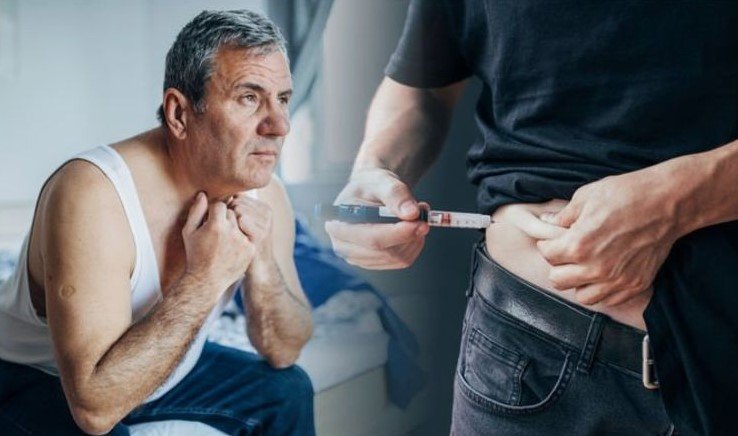Erectile Dysfunction in Different Age Groups
1. Introduction to Erectile Dysfunction (ED)
Erectile Dysfunction (ED) is a common condition that affects men of all ages, although it becomes more prevalent as men grow older. ED refers to the inability to achieve or maintain an erection firm enough for sexual intercourse. While this is often thought of as a condition affecting older men, younger men also experience ED due to various physical, mental, and lifestyle factors. Understanding how age impacts ED can help men take proactive steps in maintaining their sexual health.
2. How Age Impacts Erectile Dysfunction
Aging plays a significant role in male sexual health. As men age, certain physiological changes, such as decreased blood flow and hormone levels, can impact sexual performance. While younger men may experience ED due to stress, lifestyle, or psychological factors, older men are more likely to face ED due to chronic health issues and natural body changes.
3. Erectile Dysfunction in Young Adults (18-30)
Men in their late teens to early 30s can experience ED, even though it’s less common. In younger men, ED is often tied to psychological factors and lifestyle choices rather than physical conditions.
3.1 Psychological Factors
For young adults, anxiety and depression can significantly affect sexual performance. Performance pressure, whether from internal or societal expectations, can create stress that interferes with arousal and erection.
3.2 Physical Health Factors
Young adults who engage in poor lifestyle choices, such as unhealthy diets, lack of exercise, or substance abuse, may also experience ED. Alcohol and recreational drugs can cause temporary and sometimes long-term sexual dysfunction.
4. ED in Middle-Aged Men (30-50)
For men in their 30s and 40s, stress from work, family life, and other responsibilities can lead to ED. Health conditions that begin in this age range, such as diabetes or hypertension, also contribute to ED symptoms.
4.1 Work and Life Balance
This age group is often dealing with job-related stress, financial pressures, and family responsibilities, which can lead to chronic stress and, subsequently, ED.
4.2 Health Conditions and ED
Conditions like diabetes and hypertension, common in this age group, directly affect blood flow and nerve function, both crucial to achieving an erection. Medications used to manage these conditions can also have side effects that impact sexual performance.
5. ED in Older Adults (50+)
As men age, the likelihood of experiencing ED increases. This is often due to age-related changes in cardiovascular health and hormone levels.
5.1 Cardiovascular Health
Good blood flow is essential for erections, and cardiovascular conditions, such as atherosclerosis, can restrict blood flow to the penis, causing ED.
5.2 Hormonal Changes
Testosterone levels naturally decrease with age, which can lead to decreased libido and ED. Hormonal imbalances can make it difficult to maintain erections, impacting overall sexual satisfaction.
6. The Link Between Lifestyle Choices and ED in All Ages
Regardless of age, lifestyle choices like diet, exercise, and substance use play a role in ED. Men who lead healthier lifestyles tend to experience fewer issues with sexual performance.
6.1 Smoking, Alcohol, and ED
Smoking harms blood vessels, reducing blood flow to essential areas, including the genitals. Similarly, alcohol, especially in excess, can dull sexual desire and performance.
6.2 Obesity and ED
Obesity can lead to poor vascular health and hormonal imbalances, both of which are linked to ED. Regular exercise and a balanced diet can help maintain sexual health by promoting circulation and hormone regulation.
7. Psychological Factors and ED Across All Ages
Mental health is closely linked to sexual health. Anxiety, depression, and stress can impact sexual function at any age, with self-esteem and relationship quality often playing roles.
7.1 Anxiety and Depression
Anxiety can create a cycle of worry and performance issues. Depression often lowers libido, which can reduce the motivation for intimacy.
7.2 Relationship Factors
A close emotional connection with a partner often enhances sexual satisfaction. Issues with communication and emotional intimacy can lead to or worsen ED.
8. Role of Technology and Medications in Treating ED
With advances in medicine, there are now many ways to treat ED, from medications to wearable technology that monitors health conditions contributing to ED.
8.1 Medications for ED
Drugs like Viagra and Cialis work by increasing blood flow to the penis, which can help men achieve and maintain an erection. These medications are safe for many but should be used under a doctor’s supervision.
8.2 Technology and Wearables
Devices that monitor heart rate and blood flow can provide early warning signs of ED-related health issues. Telemedicine platforms have also made it easier to consult specialists.
9. When to Seek Help for ED
While occasional ED isn’t necessarily a cause for concern, chronic ED may indicate underlying health issues. Seeking help can provide solutions and prevent further health complications.
9.1 What to Expect from a Doctor Visit
A doctor may recommend tests like blood work, hormonal assessments, or vascular evaluations to determine the cause of ED.
9.2 Treatment Options Beyond Medication
Therapies such as counseling and lifestyle adjustments can be effective. Alternative treatments, like acupuncture or herbal supplements, are also options, although they may have varying effectiveness.
Conclusion
Erectile Dysfunction can impact men at any age, though the causes and solutions may vary. Younger men often face psychological challenges, middle-aged men experience stress-related ED, and older adults commonly encounter health-related factors. Regardless of age, treatment options are available, and lifestyle improvements can make a significant difference. If you’re experiencing ED, consider reaching out to a healthcare professional for advice and support.
FAQs
Can erectile dysfunction be reversed?
Yes, in many cases, erectile dysfunction (ED) can be managed or even reversed, especially if it’s due to lifestyle factors or certain health conditions. For example, if ED is linked to stress or unhealthy habits, lifestyle adjustments like exercise, a balanced diet, or stress management techniques may help restore normal function. For others, medications, therapy, or medical treatments can provide long-term solutions. It’s essential to talk to a healthcare provider to find the most effective approach based on individual needs.
What lifestyle changes improve ED?
Several lifestyle changes can improve ED and overall sexual health. Key adjustments include:
- Regular Exercise: Improves blood flow, stamina, and helps with weight management.
- Healthy Diet: A balanced diet that includes fruits, vegetables, whole grains, and lean proteins supports vascular health.
- Quit Smoking: Smoking negatively impacts blood vessels, reducing circulation necessary for an erection.
- Limit Alcohol Intake: Excessive alcohol can impair sexual function, so moderation is best.
- Reduce Stress: Stress management techniques like meditation, hobbies, or spending time outdoors can alleviate ED caused by stress.
How does aging affect the severity of ED?
Aging naturally brings changes that can make ED more common and severe. Factors include decreased testosterone levels, slower blood circulation, and the presence of chronic health conditions like hypertension or diabetes. These health issues can interfere with the body’s ability to achieve and maintain an erection. As men age, they may require more time for arousal and stimulation to maintain sexual health, but treatments and lifestyle modifications can help mitigate these effects.
Are there natural remedies effective for ED?
Some men find natural remedies helpful for mild to moderate ED. Options include:
- Herbal Supplements: Some supplements like ginseng, L-arginine, or Yohimbe may support blood flow, though it’s essential to consult a doctor before using them.
- Acupuncture: This traditional Chinese practice may help reduce ED, especially if stress or psychological factors are involved.
- Healthy Diet and Exercise: Natural changes in diet and regular physical activity can often provide lasting benefits for ED. Although these remedies may be beneficial for some, they are not substitutes for professional medical advice, especially for severe ED.
Does ED always indicate a health issue?
Not always. Occasional ED is normal and can happen due to stress, fatigue, or temporary anxiety. However, if ED is frequent or worsening, it could be a sign of underlying health issues like cardiovascular disease, diabetes, or hormonal imbalances. Persistent ED can sometimes be an early warning signal for these conditions, so it’s a good idea to consult a healthcare provider if ED becomes a recurring concern.







